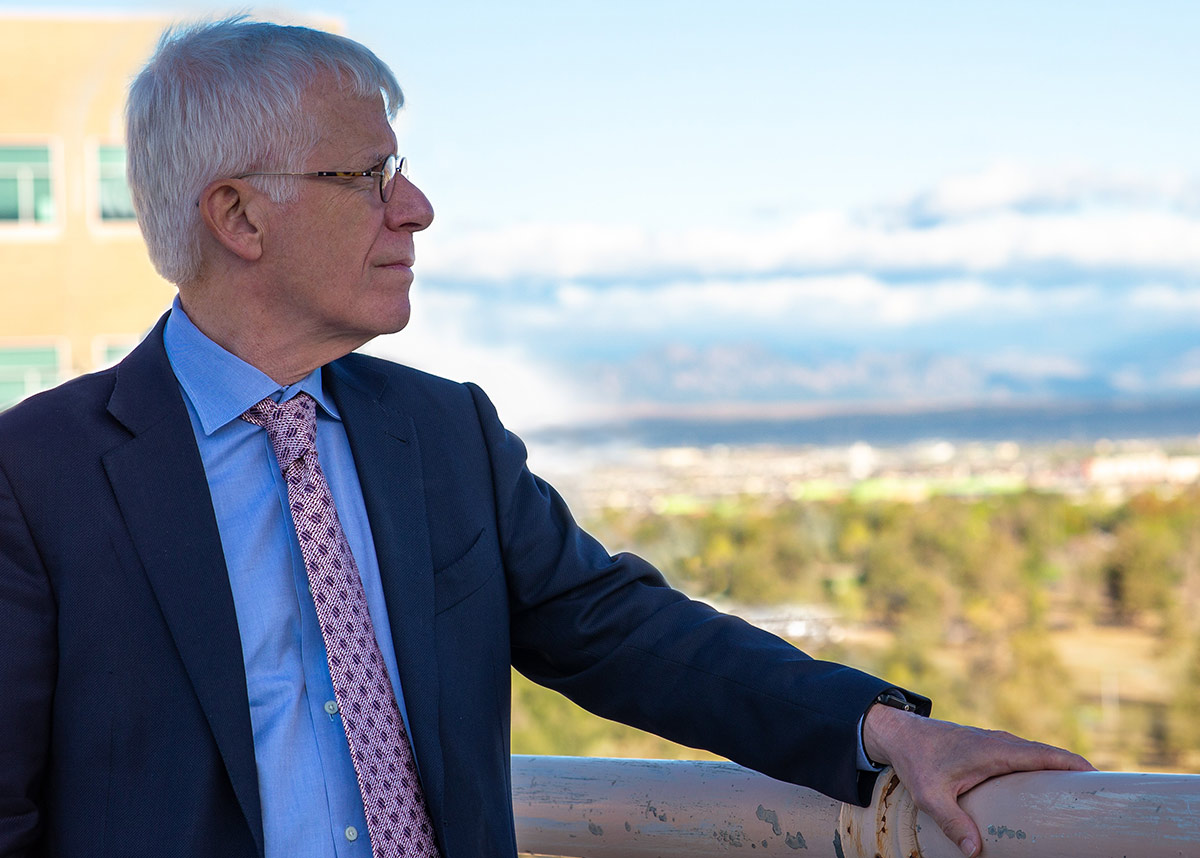Colorado's epidemic pauses, and science returns to the White House
Jan 19, 2021
Last week, writing about the insurrection at the Capitol was inescapable; this week the same is true for tomorrow’s presidential inauguration and its consequences for public health. The high-profile announcement of the Biden-Harris science team is encouraging and a turn-around. Eric Lander, the geneticist director of the Broad Institute, has been named as leader of the Office of Science and Technology Policy (OSTP) and will also serve as Science Advisor, a position elevated to Cabinet level. Alondra Nelson, a social scientist at Princeton, will be OSTP’s Deputy Director. Strong co-chairs have been named for the President’s Council of Advisors on Science and Technology (PCAST). Over the first 33 months of the Trump Administration, PCAST had been dormant until some appointments were made in 2019. The Council dates to 1933 and its members have been appointed by Presidents since Franklin Delano Roosevelt. Frances Collins continues as Director of the National Institutes of Health, a position that he has held since his appointment by President Obama in 2009. He has been a steadying influence. The science team will have much to do.
The prominence placed on the appointment of these science leaders for the new administration is reassuring. Given the continuing tragedy of the SARS-CoV-2 pandemic, I am hopeful that the science of public health will be a priority. It should be. January 21 is the one-year anniversary of the identification of the first case of SARS-CoV-2 in the United States. A year ago, the risk of the new virus spreading was described as “low.” Bolder steps then might have limited the pandemic’s growth. A Monday New York Times story 400,000 Deaths in a Year and Failure at Every Level) chronicles the ensuing year and the many failures to heed the science. The failures were at all levels, beginning with a lack of national leadership, dismissal of evidence-based approaches by the governors of too many states, and breakdowns of public health measures at the local level.
As the new administration begins, it will face a still uncontrolled pandemic, daily national totals of COVID-19 deaths reaching 4,000, and insufficient vaccines for the most vulnerable. The amount of vaccine available is contentious with states claiming that promised vaccine doses are not being shipped. Governor Polis accused the Trump administration of lying about the vaccine supply. The public is confused about the availability of vaccine doses and should be. With fears high about the risks of the vaccines, unambiguous and trustable communication is needed about every aspect of vaccination. On Thursday, I listened to a town hall discussion hosted by the CU Anschutz Office of Diversity, Equity, Inclusion and Community Engagement on vaccine hesitancy in the Black and brown communities. I was disturbed by the challenge of addressing the many concerns voiced about the vaccines, the medical establishment, and the legacy of racism as it reaches to health care and vaccination. There is much to do.
Fortunately, Colorado is among the small group of states with the epidemic seemingly under control. Over the last week, the hospitalization count has been stable in the low 800s, well below the December peak that exceeded 1,800. We appear to have escaped a holiday surge, but the arrival of the UK variant strain and its greater transmissibility are of concern. Simple arithmetic: for a 50% more transmissible strain, if it were to become the sole circulating strain at present, the effective reproductive number (RE) would increase from 0.8 approximately to 1.2. The significance of this change: a switch from a falling epidemic curve to one that is rising.
Yesterday was Martin Luther King Jr. Day. Even as we continue to grapple with structural racism, there is one powerful instance of progress—the election of Reverend Raphael Warnock as Senator from Georgia. Senator Warnock is senior pastor at Ebenezer Baptist Church where King was co-pastor when assassinated in 1968. He will be the first African-American Senator from Georgia. But the racist legacy of the Confederacy persists; Alabama and Mississippi have combined Martin Luther King Jr./Robert E. Lee holidays. There is much to do.
Tomorrow is the inauguration. It is also the day that Governor Polis will speak in our collaborative series with the Denver Museum of Nature and Science. Watch both!
We must learn to live together as brothers or perish together as fools.
Martin Luther King Jr., March 22, 1964



